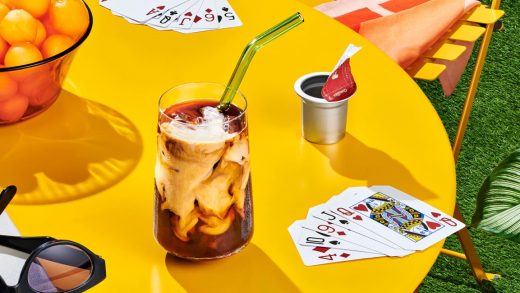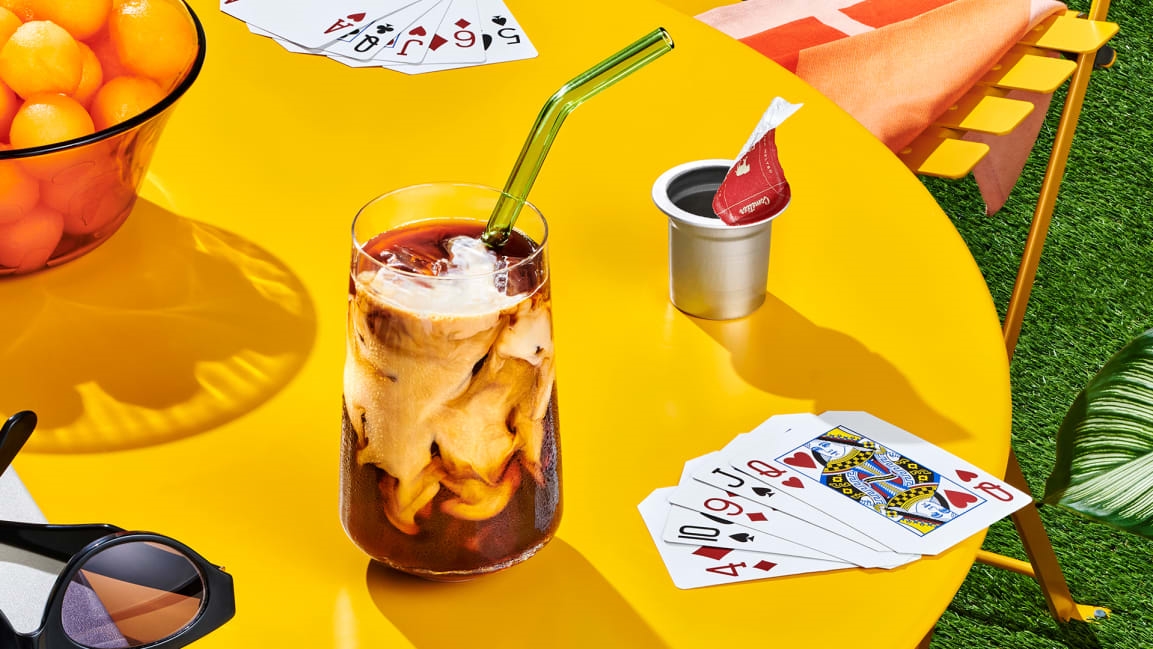These frozen coffee pods are the future of barista-quality coffee at home
Each morning for the past two weeks, I’ve taken out a tiny aluminum capsule from my freezer. Inside is a small, frozen puck of coffee, which I pop in a glass and pour a few tablespoons of boiling water over from my kettle. As a Bostonian, I’ll drink iced coffee in a tundra, so I add ice cubes, top off the glass with almond milk and water, and toss the capsule into the recycling bin. And that’s the beauty of Cometeer.
The new-ish company sells K-cup size capsules of flash-frozen brewed coffee, that are stashed in your freezer and reconstituted with hot water. They can also chill in your fridge or counter (or carry-on, as the company emphasizes, the capsules are TSA-compliant) for up to 24-hours and be added to cold water (or ice cream for affogato) once it melts. The capsules don’t explode or go bad if left defrosted, but the brand says the 24-hour window is when the “full complexity” is at its peak freshness.
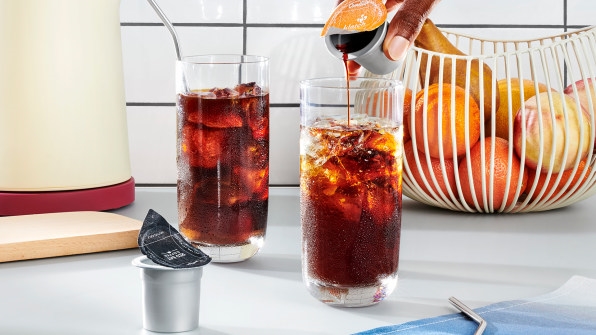
I call Cometeer “new-ish” because their story began in 2015. Still, it didn’t truly take flight until co-founder and CEO Matthew Roberts sought the guidance of fellow Boston-based coffee entrepreneur George Howell to level up his offerings. The brand now partners with 10 high-end, specialty roasters — including Howell’s namesake brand, Durham’s Counter Culture, and L.A.’s Go Get Em Tiger (GGET)— offering light, medium, and dark roasts with various tiers of caffeine. Today, the company operates from a scrubbed down frozen fish facility once owned by Clarence Birdseye in Gloucester, MA, a city Roberts proudly notes is a former hub of frozen food innovation. Cometeer reimagined the fast-freezing factory as a 70,000-square-foot coffee lab and production HQ, with the support of a total $100 million fundraise over multiple rounds. The investors list is almost comically stacked as a who’s who of coffee, including a former Nespresso president, the founder of Keurig Green Mountain, Blue Bottle’s lead investors, and a former R&D director for Starbucks. The product became available to consumers in October 2021.
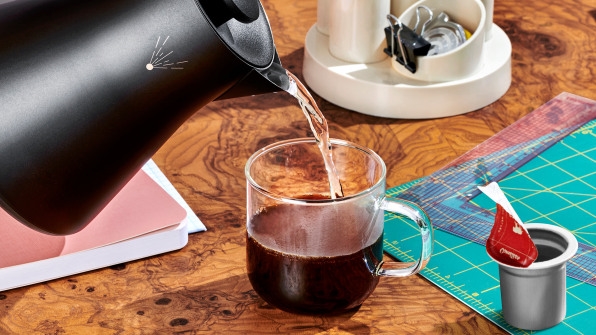
Is it inexpensive? No, not really. The company ships the product in boxes of 32 for $64, or $2 a capsule. (Compared to the $26 bottle of Jot, a coffee concentrate that makes 14 cups and takes up much less real estate.) But as is the angle for most of these convenience-focused coffee brands — it costs less than your average coffee shop latte. The difference for Cometeer is that it tastes just like, if not better than, many of the coffee shop takeaways I’ve had. During lockdown and the heightened days of the pandemic, I missed my coffee shop rituals but assimilated to attempting to perfect my at-home brews. And I’m not alone; last March, the National Coffee Association reported a third of Americans tried to replicate their coffee shop experience at home during the pandemic in their 2022 trends report.
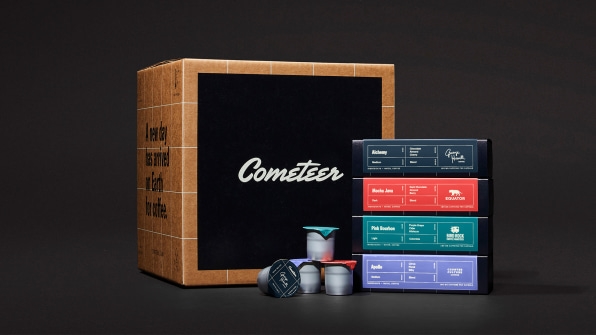
At the moment, Cometeer’s accessible to a direct-to-consumer market, shipping 32-packs of their coffee capsules on a subscription basis. Because the product itself is pretty small—they are packed in pencil case-sized boxes wrapped in butcher’s paper—packaging is minimal, but the added weight of the dry ice that keeps the pods frozen adds to the shipment’s carbon footprint. Roberts said the plan is for the brand to expand into new distribution channels this year, noting Cometeer will soon be available for purchase at retail. “We know not everyone is going to want to trial a box of coffee online,” he says. Offices are also a target consumer for the brand, with easy-access corporate offerings on their website and subscription options for remote, in-person, and hybrid teams.
Cometeer has an additional element to its cool factor. The company has dabbled in rare blends, releasing limited quantity packs featuring award-winning beans for a slightly higher price ($3-5 per capsule). Beans from Equator Coffees owner Helen Russell’s Panama coffee farm, Finca Sophia, sold for $1300.50 per pound at auction. Equator is one of Cometeer’s roasting partners, but Russell sent varietals of the lot to the brand for limited-edition packs priced at $99 for 20 that quickly sold out. Roberts says it was the first in a line of Stellar Series drops that will debut in the future.
(46)

